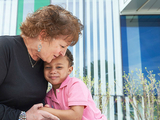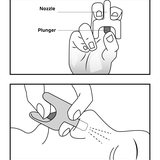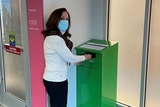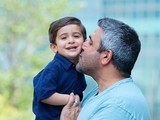Poison Control Center

The Poison Control Center at Children's Hospital of Philadelphia (CHOP) is a vital resource for families. Committed to safeguarding your child's well-being, the center provides immediate assistance in case of poisoning incidents. Staffed by experts in toxicology, the center offers valuable guidance to parents and caregivers 24/7.
Their comprehensive approach includes education on poison prevention, ensuring a safe home environment for your family. Equipped with the latest information, the CHOP Poison Control Center is your go-to source for quick and reliable assistance, contributing to a safer and healthier upbringing for your child.

Naloxone
Overdose death rates are continuing to rise in Philadelphia and the region. Carrying naloxone and keeping it at home can give you the power to save a life. Learn more about this medication and how you can use it to help reverse an overdose – in both children and adults.
More resources to keep families safe
For families
For professionals

Safe disposal of medication
Keep your family safe by cleaning out your medicines. Has a bottle expired? No longer in use? It’s time to toss. Learn about safe disposal options.
Impact Report 2022
Learn how CHOP's team of physicians, nurses, pharmacists, quality, communication, and public health experts works together to strengthen our region’s public health infrastructure by meeting our communities where they are, providing them with actionable and empathetic guidance that they can trust.

Meet our team
Every specialist who answers calls in the Poison Control Center is specially trained in toxicology, and many are certified by the American Association of Poison Control Centers. Our medical toxicology consultants from other local institutions further expand our ability to provide services to the region.
Make a gift that matters to your family — and other families like yours — when you support the Poison Control Center at Children's Hospital of Philadelphia.
